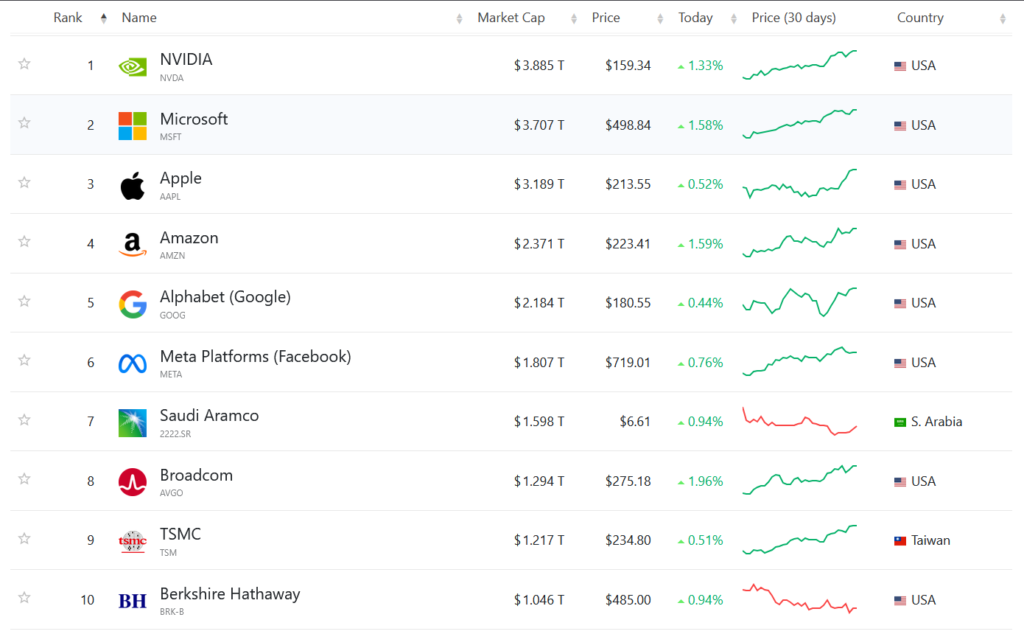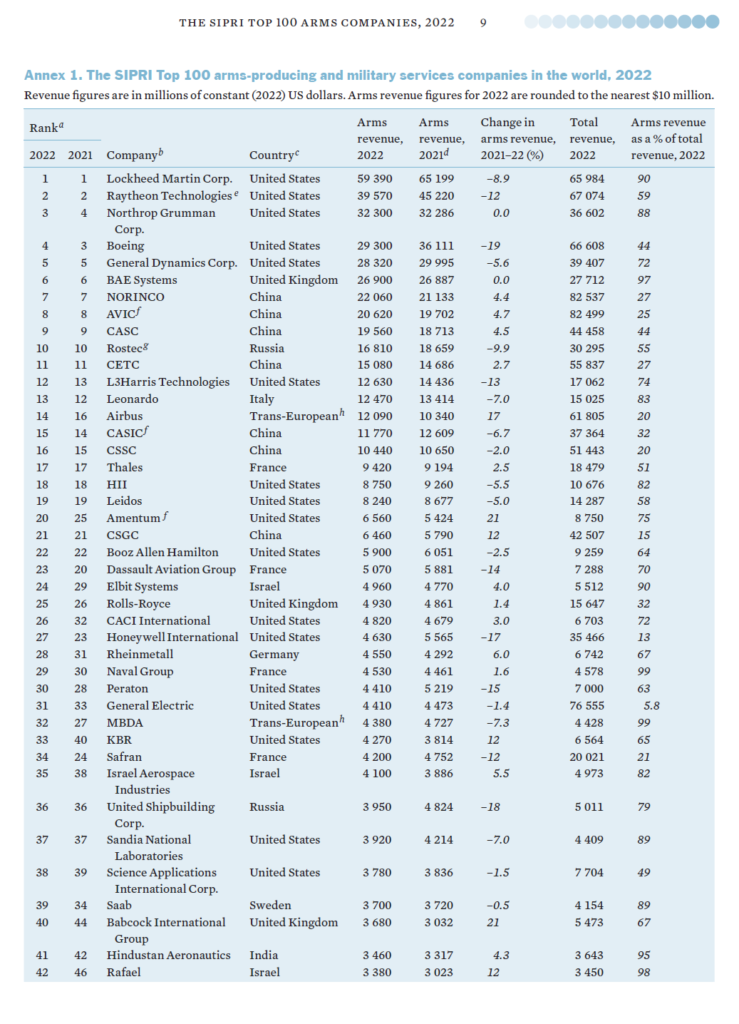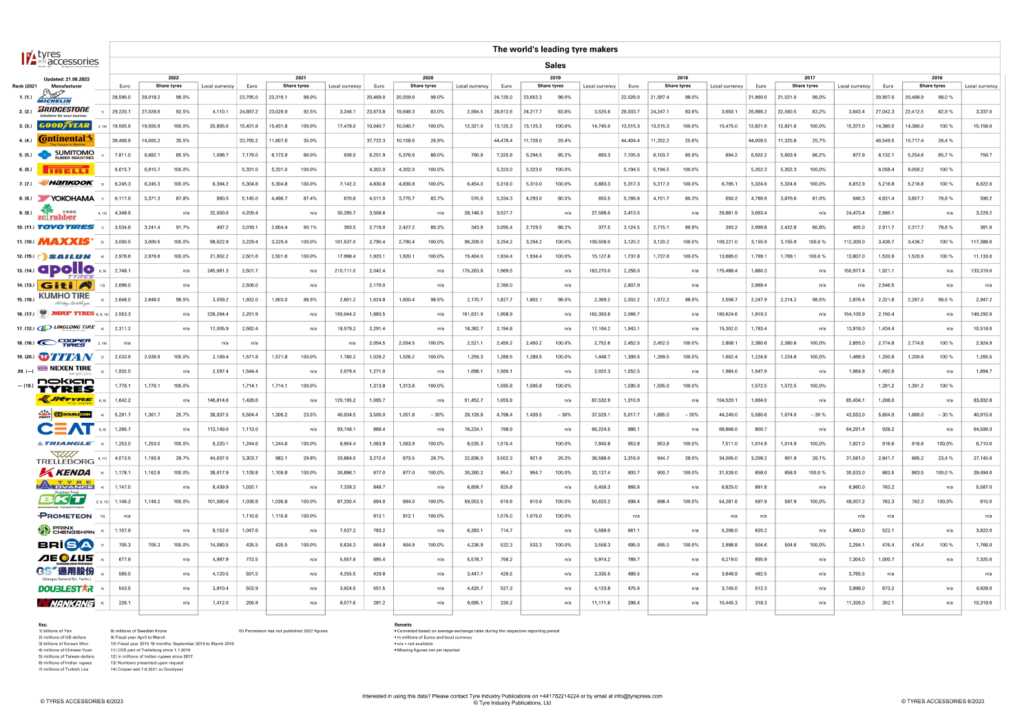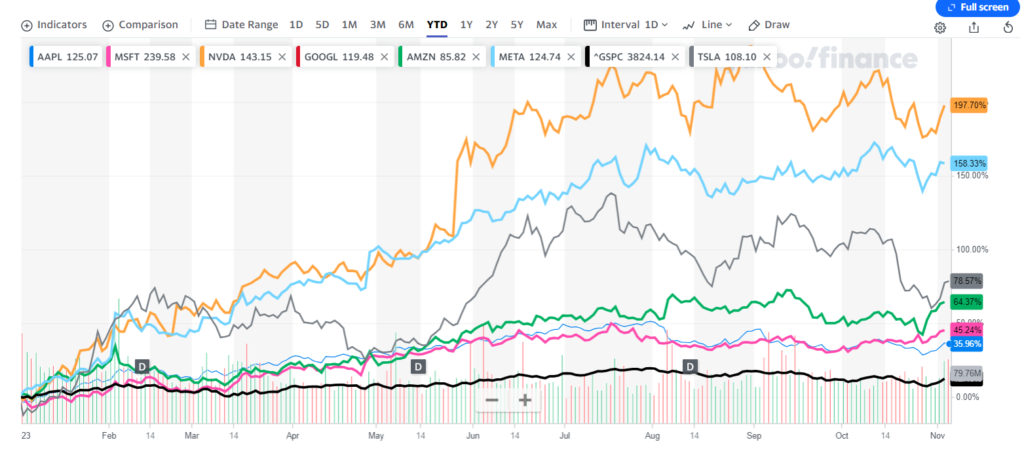Electric Vehicle (EV) sales are booming in many parts of the world. China is the leading the world and Europe is also playing catch. Countries such as Norway are already ahead of many other countries in Europe in EV adoption. Ironically Norway is one of the major oil producers with state-owned Equinor(EQNR) as one of the top revenue generators for the economy. Equinor used to be knows as Statoil. The economic powerhouse of Europe, Germany though is still way behind in EV adoption. Similar to the US, Germany is wedded to fossil fuels. According to a recent article in Deutsche Well, just 2.08% of the total number of cars on the road in Germany are EVs. This is indeed shocking for a country that is the leader of Automotive engineering where some of the world’s great luxury automakers are based. Below is a brief excerpt form the piece:
‘A sense of hopelessness in Germany’
Bratzel says that German car manufacturers “started too late compared to players such as Tesla or some Chinese manufacturers” and then “did not approach the topic with the necessary focus.”
Notwithstanding efforts to boost battery technology development in particular, “you first have to catch up with the speed of the Chinese [companies] and Tesla,” he says.
Dudenhöffer concurs that China has a clear advantage.
“We are cutting back. Investments are being postponed and investments are being made in China. The budget problems and the lack of a federal budget are exacerbating the problem,” he says, adding that “Germany is at a standstill. And things will get really tough after 2025 when the Chinese will be dominating the global market for electric cars.”
Dependence on China
On November 30, car manufacturers BMW and Mercedes-Benz announced plans to set up a joint network of fast-charging stations for electric vehicles in China — a logical development, says Dudenhöffer.
“Germany is not the country where such investments are worthwhile. In China, electric cars now account for a market share of almost 40%.”
Bratzel also highlights the danger of too much dependence on China, although he adds that it’s a two-way relationship.
“China is also dependent on us.” But there is a caveat, he says. “In the field of electromobility, we are more dependent on China. That will remain the case for a few more years, especially when it comes to battery cells.”
The development and production of batteries is key, says Dudenhöffer. “We are expanding more slowly. Production is going to Eastern Europe because energy is cheap there. But China is already at the forefront and its importance will continue to grow.”
Source: German auto industry: Will 2024 mark a turning point?, DW
As mentioned above, China is the top producer of EVs in the world. In 2022, Chinese automaker BYD was the top ranked automaker with sales of over 1.8 million EVs globally. Tesla(TSLA) was the second ranked EV automaker followed by China-based SAIC GM-Wuling. The three major German auto giants took the next three spots as shown in the chart below:
Global EV Sales by Company in 2022: Chart
Click to enlarge
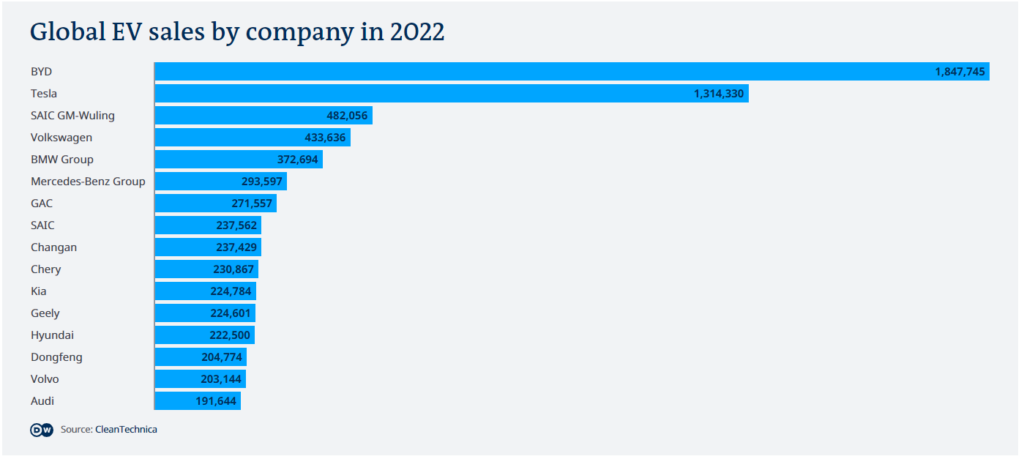
Source: German auto industry: Will 2024 mark a turning point?, DW
In the first half of 2023, China’s BYD was the top seller was well as shown in the chart below followed by Tesla.
Click to enlarge
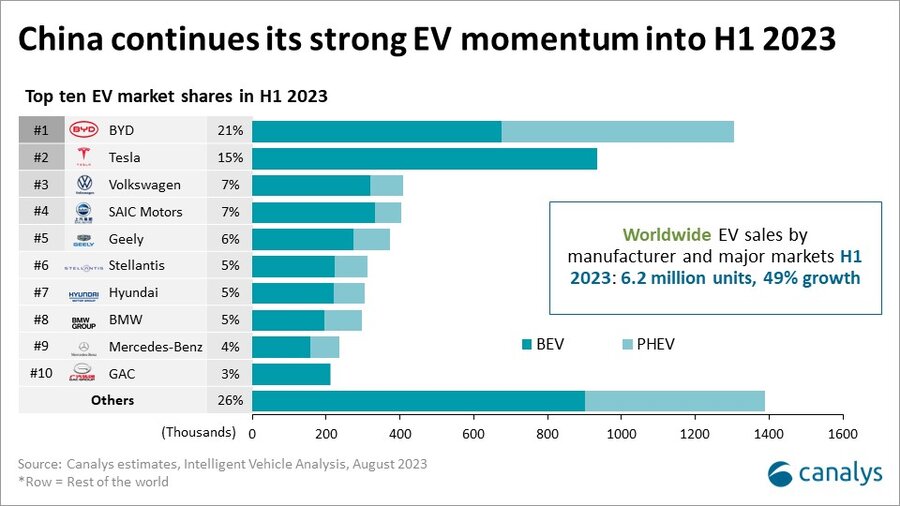
Source: Global EV sales up 49% to 6.2 million units in H1 2023, with 55% of vehicles sold in Mainland China, Canalys
I will post update when full year 2023 data is out some time next year.
Disclosure: No positions
